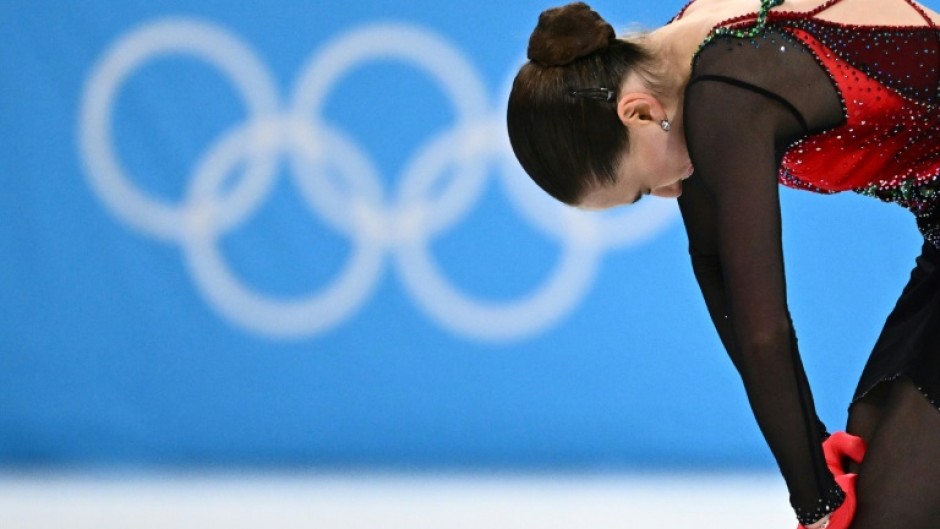MOSCOW - Russian figure skater Kamila Valieva received a four-year ban from the Court of Arbitration for Sport (CAS) for failing a doping test prior to the 2022 Winter Olympics.
A Russian Anti-Doping Agency (RUSADA) investigation had found the teenager bore "no fault or negligence" for a failed test before the Beijing Olympics, where she won team gold aged 15.
But on Monday, CAS upheld an appeal by the World Anti-Doping Agency (WADA).
"A period of four years ineligibility is imposed on Ms Valieva," CAS said. "All competitive results of Ms Valieva from 25 December 2021 are disqualified, with all the resulting consequences."
WADA welcomed the ban but took aim at those who had doped Valieva, now 17.
"The doping of children is unforgivable," WADA said in a statement, urging "governments to consider passing legislation -- as some have done already -- making the doping of minors a criminal offense".
By contrast, the Kremlin slammed what it called a "politicised" decision.
"Of course, we don't agree with it... From my point of view, of course, it's politicised," Kremlin spokesman Dmitry Peskov told Russian news agencies.
Russia's Olympic Committee (ROC) said the decision proved that "war has been declared on Russian sport and, as we see, all methods are good".
Valieva's positive test raised questions not just about her guilt but how she was treated as a minor, the way the test was conducted and the value of the drug involved for enhancing performance.
In her defence, Valieva blamed "contamination by cutlery" shared with her grandfather, who was treated with trimetazidine after receiving an artificial heart, and who drove her to training every day.
However doubt surrounds the value of trimetazidine due in particular to its "numerous side effects" ranging from "gait disorders" to "hallucinations".
In Beijing in February 2022, Valieva became the first female skater to land a quadruple jump in Olympic competition, helping Russia secure team gold.
The next day, she was told she had tested positive before the Games for trimetazidine, a drug used to treat angina but banned for athletes.
Nearly two years later, the International Olympic Committee (IOC) have still not organised a medal ceremony for this event, to the great dismay of the American, Japanese and Canadian skaters who were beaten by the Russians.
United States officials called the CAS decision as a victory for clean athletes, but said justice had been "denied" by the two years it had taken to resolve the case.
"While any sense of true justice has been denied by the unbelievable and unnecessary delay in this case, we are incredibly pleased for clean athletes that this sad saga has finally come to an end and hope they can find joy and satisfaction in the fact that their long wait for justice is over," United States Anti-Doping Agency (USADA) chief executive Travis Tygart said.
"At the same time, our hearts hurt for yet another Russian athlete who the system has failed."

